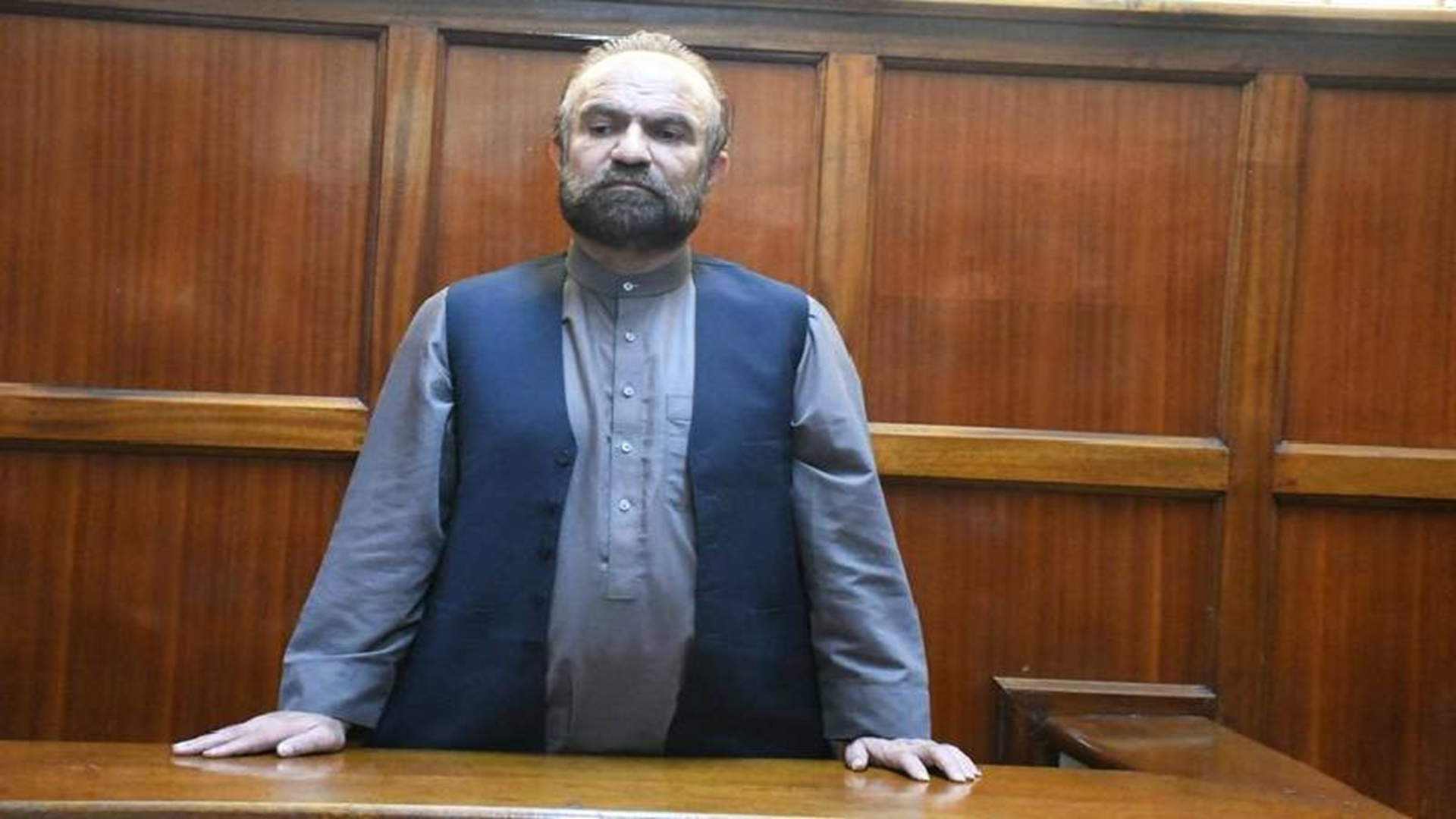Kenyan Court Orders Extradition of Former Afghan Deputy Speaker to Face U.S. Drug Trafficking and Firearms Charges
A Nairobi court issued a ruling to extradite Abdul Zahir Qadeer, also known as Haji Abdul Zahir, a former deputy speaker of Afghanistan’s parliament, to the United States. Qadeer faces serious charges related to international drug trafficking and illegal possession of firearms, including machine guns and destructive devices. The decision, handed down by Senior Principal Magistrate Benmark Ekhubi at the Milimani Law Courts, marks a significant step in international cooperation to combat transnational crime.
Qadeer, a prominent Afghan politician and former commander in the Afghanistan Border Police, was arrested on April 14, 2025, at the Safari Park Hotel in Nairobi, just six days after arriving in Kenya via a Qatar Airways flight from Kabul. The arrest was executed by Kenya’s Directorate of Criminal Investigations (DCI) following a request from the U.S. Drug Enforcement Administration (DEA). A warrant for Qadeer’s arrest had been issued on March 25, 2025, by the United States District Court for the Southern District of New York, citing charges of conspiracy to import narcotics, possession of machine guns, and conspiracy to possess such weapons.
The Office of the Director of Public Prosecutions (DPP), led by Renson Ingonga, successfully argued for Qadeer’s extradition. Principal Prosecution Counsel Victor Owiti presented evidence to the court, emphasizing that the charges against Qadeer constitute extraditable offenses under Kenyan law. Owiti highlighted the gravity of the accusations, which include trafficking unlawful medications and possessing military-grade weaponry. He assured the court that Qadeer would have a fair opportunity to defend himself in a U.S. court, underscoring the importance of due process in the extradition process.
Qadeer, born in 1973 in Nangarhar province, has a storied political and military background. The son of the late Abdul Qadir, a former vice president of Afghanistan’s transitional government who was assassinated in 2002, Qadeer served as a member of Afghanistan’s Wolesi Jirga (lower house of parliament) from 2010 to 2021 and as its first deputy speaker in 2012. He was also a general in the Afghanistan Border Force and led the “Peace Karwan” movement in Nangarhar, where he gained notoriety for his vocal opposition to foreign intervention in Afghan affairs. During his tenure, Qadeer was known for leading offensives against ISIS in eastern Afghanistan, though he faced criticism for controversial actions, including the public execution of five ISIS members by fighters affiliated with him.
In court, Qadeer’s legal team, led by Omega Ochieng of Ndegwa & Ndegwa Advocates, vigorously opposed the extradition, arguing that the charges were politically motivated. Qadeer claimed his arrest stemmed from his long-standing criticism of U.S. policies in Afghanistan, particularly during the administration of former President Donald Trump. He described the extradition request as a “veiled attempt to persecute him politically” and warned that Kenya risked being drawn into a geopolitical conflict between the U.S. and Afghanistan. Qadeer asserted that he had never faced criminal charges in Afghanistan or elsewhere and described himself as a “law-abiding Afghan citizen.” He further noted that his last visit to the U.S. was nearly two decades ago, calling the sudden interest in his extradition “strange and troubling.”
Despite these arguments, Magistrate Ekhubi ruled that the extradition treaty between Kenya and the U.S. was valid and applicable. The court found no evidence to support Qadeer’s claims of political persecution, noting that he had not sought asylum or claimed refugee status in Kenya, rendering protections under the Refugee Convention inapplicable. Ekhubi dismissed a request from Qadeer’s lawyers for a stay of the extradition order to allow for an appeal, stating that an appeal could proceed without delaying the process. The court directed the Kenyan government to surrender Qadeer to U.S. authorities without delay, with the transfer expected to occur within the next 14 days.
The DPP and Kenyan authorities emphasized the importance of international cooperation in addressing cross-border crimes such as drug trafficking and arms smuggling. John Wafula, an investigator with the DCI’s Anti-Narcotics Unit, testified that Qadeer posed a significant flight risk due to his lack of a fixed residence in Kenya. Prosecutors argued that his detention was critical not only to ensure his extradition but also to aid efforts to identify and apprehend potential accomplices in his alleged criminal network.
Qadeer’s arrest initially sparked confusion, with his family claiming he was detained in Dubai—a claim later debunked as a tactic to mislead investigators. In Afghanistan, Qadeer’s case has drawn attention, with members of his family meeting with the Taliban’s Acting Minister of Foreign Affairs, Maulvi Amir Khan Muttaqi, who assured them that the Afghan government would closely monitor the proceedings.
This extradition case underscores Kenya’s growing role in facilitating international law enforcement efforts. In recent years, Kenya has cooperated with the U.S. on several high-profile extradition cases, including those involving wildlife trafficking, narcoterrorism, and murder. The decision to extradite Qadeer highlights the strength of the extradition treaty between Kenya and the U.S. and the commitment of both nations to combatting global organized crime.
As Qadeer prepares to face trial in the U.S., his case continues to raise questions about the intersection of politics, international justice, and the fight against transnational crime. While Qadeer maintains his innocence, the evidence presented by the DEA and the rulings of the Kenyan court suggest that his legal battle is far from over.


